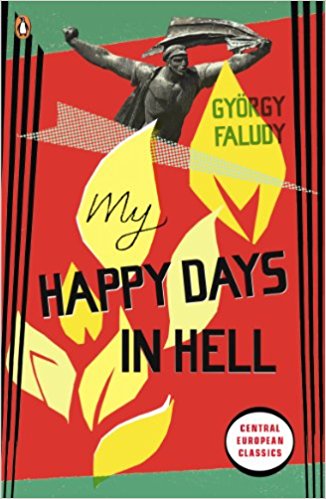Monologue
on Life and Death
 György Faludy, aged 95 |
The
poem
below was composed in a darkened punishment cell during
a prolonged period of solitary confinement endured by
its author, and committed to memory because of an
absence of writing implements. That is why it is so full
of light and colour, the Jewish-Hungarian poet György
Faludy (1910-2006), later recalled. Faludy, a fierce opponent of both Fascism and Communism, fought with the US Air Force during WW2. He returned to his homeland at the first opportunity, to be imprisoned on trumped-up charges by the Communists. He participated in his country’s doomed 1956 revolution, and then spent decades in his second exile, mostly in London, Toronto and New York. He returned home once more after the collapse of Soviet administration, to be received by a tumultuous welcome. His work is heavily ignored again by the servile literary establishment in Hungary, to suit the taste of the current, extreme rightist administration there, but it is winning wide and growing international interest in English translation. T.L.
|
Like
some
crazed lover kicking up the leaves
along an avenue of autumn trees
with tousled hair beneath a falling sky,
that’s how I loved to walk upon this earth.
Or like some traveler in a foreign city
who takes an evening stroll upon arrival,
one who looks hither, thither, starved for more
and, in a heated, happy trance, discovers
that very city of one’s secret dreams
where all is new: the lit up shop displays,
the colours of the drinks in coffee-houses,
the throngs of people – were they celebrating? –
the wild-thyme scent of freedom in the air…
a city one would never want to leave:
like such a traveler, so I viewed the world.
I knew that everything is but a fleeting
phenomenon that never can recur.
When I saw butterflies flit by, I thought,
Look well, you’ll never see these ones again.
And when I wined with my good friends, I shared
with them my heart and thoughts and words as though
I had to die before the dawn – because
I’d always feared the morning when there would be
no friends, no wine and no awakening.
I knew that others also knew that fear: they
suppressed it, and I bore it on my brow
while, whispering from its prompter’s box, my mind
kept warning me that Everything must end, that
my life was but a spark, a miracle
between the iron tongs of lifeless time,
a flash emitted by a firefly
perched on the hollow palate of decay,
an incandescent hiss of opposites…
This visceral, perpetual awareness
of my mortality endowed my life
with flavours, colours, magic and delight,
inspired and exhilarated me,
enraptured me and conjured up before me
a fairy castle from my bare existence.
Intoxicated by the planet’s finite,
once only gift of wine, I came to hold
each notion and each object and each person
as drunkards would embrace and cling to lampposts.
My world thus came alive: the firmament
displayed for me a tapestry of light,
the three dimensions of my space became
a storehouse packed with bales of rich adventures,
the face of every clock a banquet table
set for twelve people, and my passing moments
the dripping of the heavy drops of honey.
And I became a lover of the earth,
a fervent, roaming Romeo of clouds,
a troubadour beneath dead city walls
still carving Gothic ornaments in rhymes,
a bare priest at pagan rites of midnight bathing
…till time was up, and I have disappeared,
a passing, brief phenomenon, within
the timeless ocean of phenomena.
György
Faludy
Translated
from the Hungarian &
Edited by
Thomas Land
If you have any thoughts on this poem, Thomas Land would be pleased to hear them.
